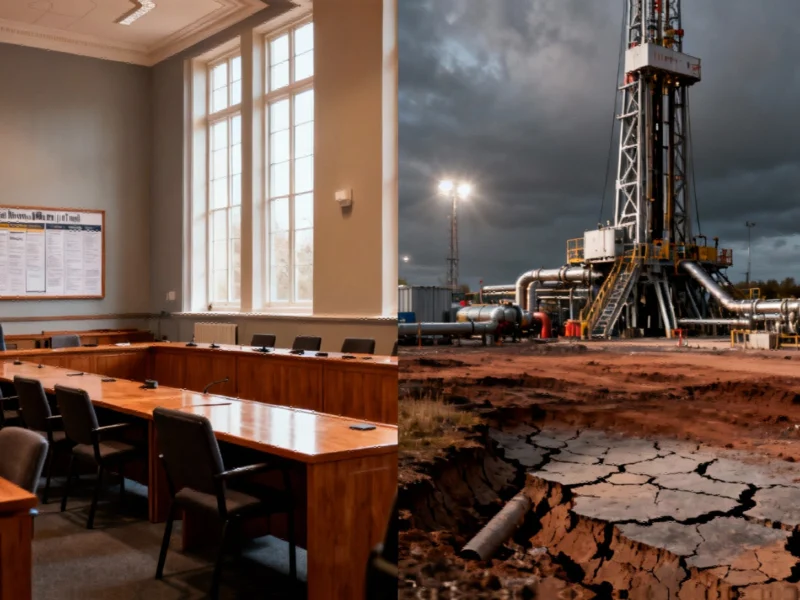Council Rejects Call for Permanent Fracking Ban
The Reform UK-led Lancashire County Council has declined to support a motion calling for the government to implement a permanent ban on fracking, creating significant discussion about the future of energy policy in the region. The decision came after Labour group leader Mark Clifford presented the motion during a council meeting, highlighting what he described as “deep concern among Lancashire residents” following recent comments by Reform UK deputy leader MP Richard Tice about potentially lifting restrictions on the controversial extraction method.
Historical Context and Local Concerns
Fracking operations in Lancashire have been contentious since the 2019 moratorium, which was implemented following a series of seismic events at the Preston New Road site in Fylde. The council’s recent decision reflects ongoing divisions about energy security versus environmental protection. Many residents recall the earthquakes measuring up to 2.9 magnitude that ultimately led to the current effective ban, creating lasting apprehension about resumed operations.
The debate occurs against a backdrop of evolving market trends in energy technology and increasing pressure to address both climate concerns and energy independence. As other regions explore alternative energy solutions, Lancashire’s position could influence broader national policy directions.
Political Divisions and Policy Implications
Council proceedings revealed clear political divisions, with Reform UK members arguing that technological advancements might address previous safety concerns. “We cannot ignore potential energy resources without proper scientific evaluation,” stated one council member during deliberations. Meanwhile, Labour representatives emphasized the overwhelming public opposition documented in numerous local consultations.
The discussion reflects wider industry developments in energy policy management, where local decisions increasingly intersect with national strategic priorities. The council’s stance may signal a shifting approach to energy security assessments across multiple UK regions.
Technological Context and Future Considerations
Recent advancements in extraction monitoring technology have become part of the conversation, with some proponents suggesting modern systems could prevent recurrence of previous issues. These related innovations in monitoring and safety protocols represent just one aspect of the evolving debate.
Meanwhile, the energy sector continues to witness recent technology transformations across multiple industries, raising questions about how traditional extraction methods fit within modern energy ecosystems. The integration of digital solutions in energy management, similar to digital procurement platforms in other sectors, suggests potential pathways for improved oversight.
Broader Industry Connections
The fracking discussion intersects with wider technological progress, including developments in data center capacity that could support more sophisticated monitoring systems. Even seemingly unrelated software improvements demonstrate how technological advancement across sectors might inform future energy extraction approaches.
Looking Forward
The council’s decision leaves the door open for continued discussion about fracking’s future in Lancashire. With the government currently reviewing national energy policy, this local stance could influence broader regulatory decisions. The absence of permanent ban support doesn’t equate to approval of resumed operations, but rather maintains the status quo while technological and political considerations continue to evolve.
As energy security remains a pressing national concern, the Lancashire council’s position highlights the complex balance between local environmental protection, technological potential, and national energy strategy—a debate likely to continue unfolding in council chambers and communities across the country.
This article aggregates information from publicly available sources. All trademarks and copyrights belong to their respective owners.



